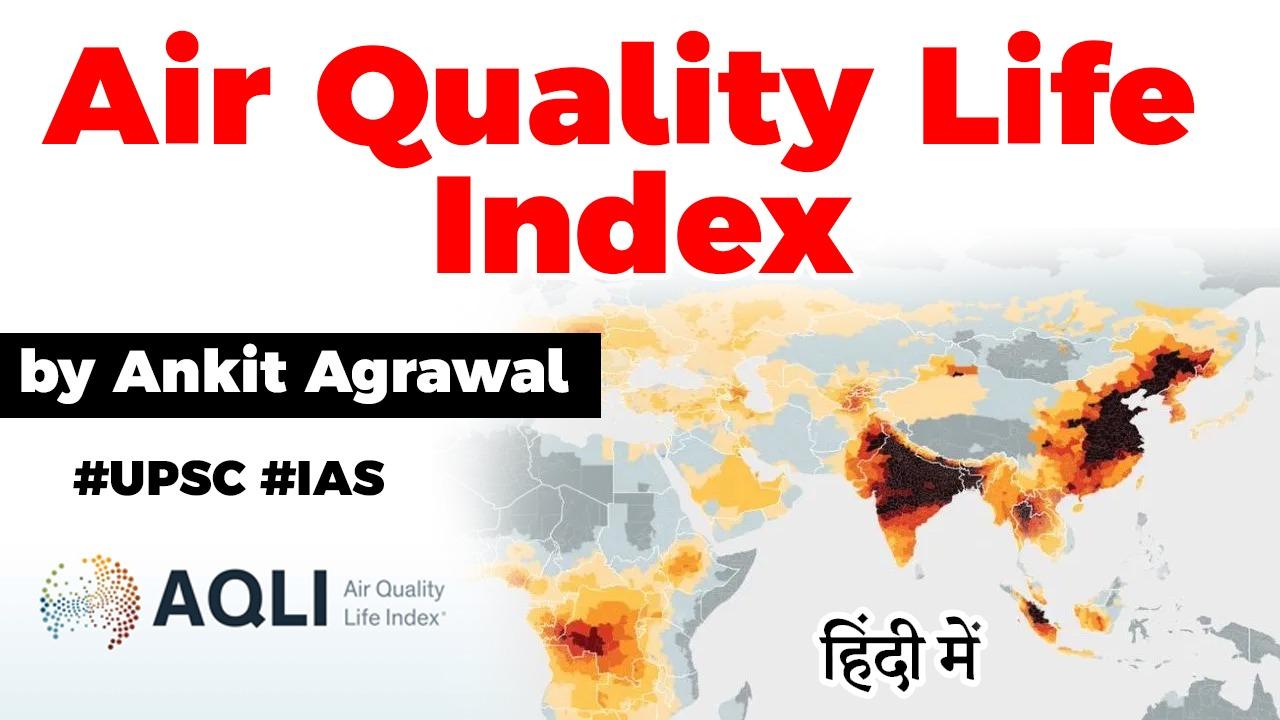Table of Contents




What it means?
- If in 2019, the average Indian was living 4 years, 3 months and 18 days lessthan he/she was eligible to as per the average life expectancy.
- That loss has now widened to 5 years, 2 months and 12 days.
- That means we have lost more than a year in the last one year, in our average life expectancy.
- The situation has deteriorated further for people living in northern India, as their life expectancy has shortened by 7 years in 2019 to 8 years now —
- Affecting 8 crore people, including those living in the megacities of Delhi and Kolkata.

Ranking
- India is the second most-polluted country globally after Bangladesh.
- While Nepal, Singapore and Pakistan are the other top countries with dirty air.
- For entire world, the average life expectancy loss is of
- 1 year, 10 months and 24 days.

- India, along with Bangladesh, Nepal and Pakistan, has seen a 44% rise in particulate pollution in the last 20 odd years.
- In fact, had the pollution levels remained the same as they were in 1998, the loss in life expectancy for Indians would have been just 3 years, 2 months and 12 days.
Improvement in China’s air quality
- Singapore, China and India were the three most polluted countries in 1998 with the Chinese losing 3.6 years of life to pollution.
- But by 2018, China was the seventh most polluted and had improved its life expectancy by 1.3 years.
- Singapore has also improved.
- China declared a “war against pollution” in 2013 with some aggressive reforms.
- Since then, three-quarters of the world’s reductions in pollution have come from China and it has reduced PM 2.5pollution by nearly 40% during the period.
What India is doing?
- In India, for example, fuel emissions standards on par with the European Union’s have taken effect nationwide as of 2020.
- This change comes after, the government declared a “war on pollution” in 2019 and announced the National Clean Air Programme (NCAP).
- The goal of the Programme is to reduce particulate pollution by 20-30 percent relative to 2017 levels by 2024.
- If India does achieve and sustain this reduction, it would lead to remarkable health improvements:
- A nationwide reduction of 25%, the midpoint of the NCAP’s target, would increase India’s national life expectancy by 1.6 years, and by 3.1 years for residents of Delhi.
 Conclusion
Conclusion
- The Air Quality Life Index shows that particulate pollution is the world’s greatest threat to human health.
- South Asia is consistently the most polluted region, with people there seeing their lives shortened by an average of five years relative to what it would be if the region met the WHO guideline.

Latest Burning Issues | Free PDF






















 WhatsApp
WhatsApp